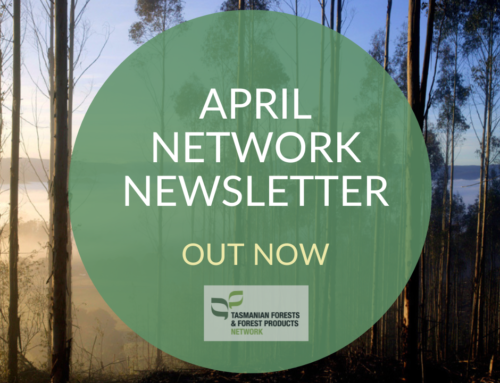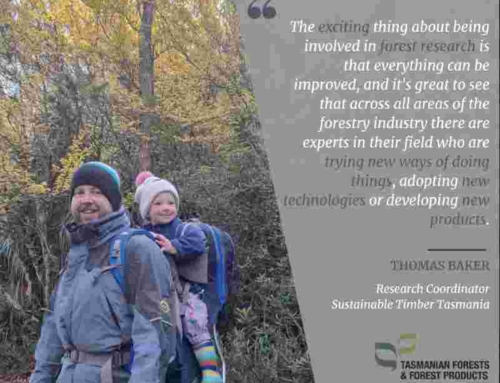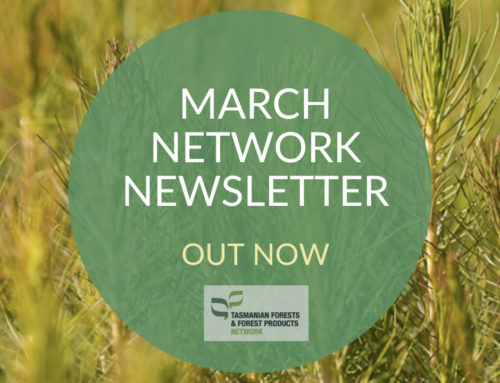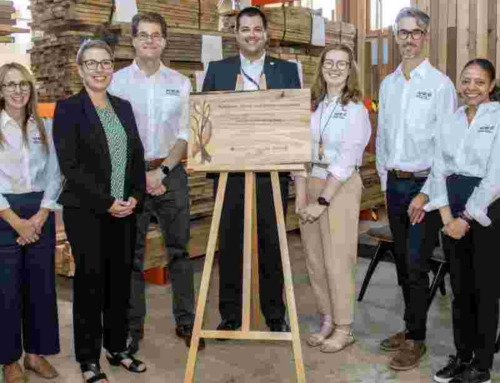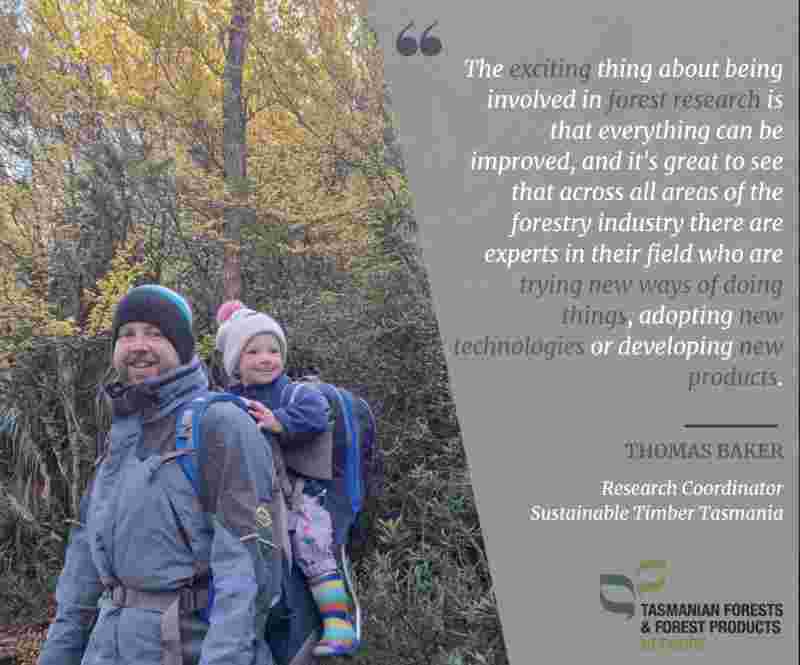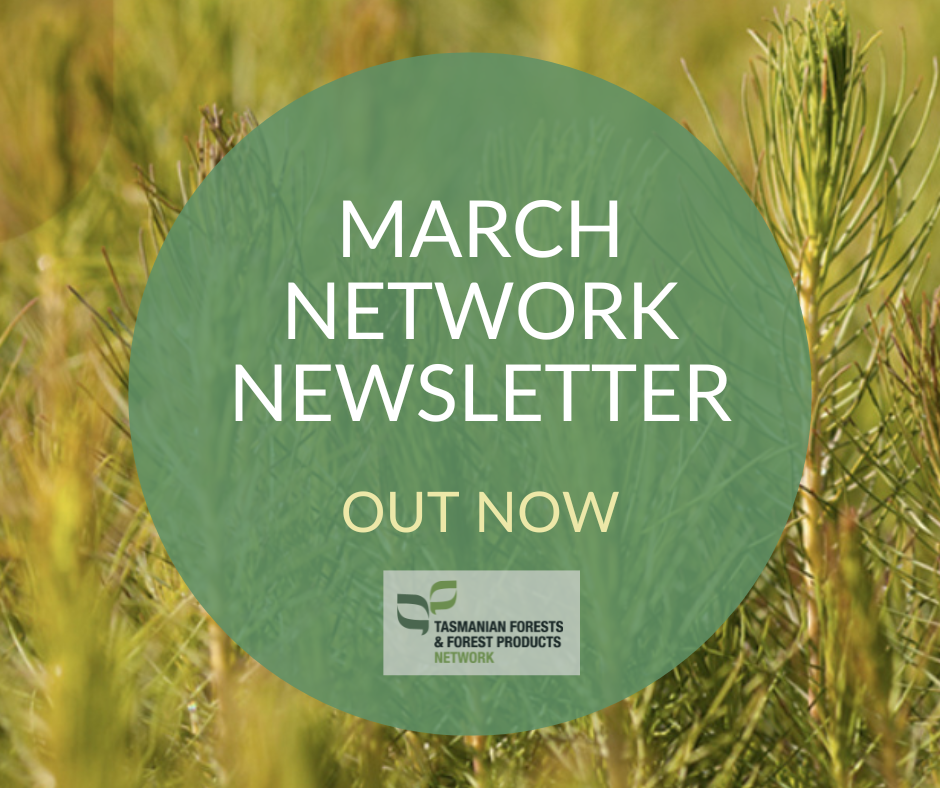“Forestry is at an inflection point”: Meet PFT’s new CEO
Dr Elizabeth Pietrzykowski is most at peace when she’s out in the bush or close to nature.
Private Forests Tasmania’s new Chief Executive grew up in Claremont with her parents and older brother Dominik, in the foothills of Mt Faulkner.
“He and I would follow the creek over the fence up into the bush where we would build lean-tos. We would often run there when we were in trouble,” Dr Pietrzykowski said.
The family spent a lot of time fishing in the freshwater lakes, frequenting Lake Sorell, Meadowbank and Craigieburn Dam.
“My parents immigrated to Australia from Poland in 1972 and despite being born and growing up in Tasmania I spoke only Polish until I was around six years old and began to learn English at school.”
A keen learner, Dr Pietrzykowski completed her education in Tasmania, including a PhD at UTAS where “the entire island is your campus”.
“Studying a Bachelor of Science in Forest Ecology enabled me to understand what a forest system is made up off, how it functions and what it needs for equilibrium,” she said.
“My honours and PhD were an extension of this and both industry-supported, so I connected with people from all parts of the supply chain. These connections have shaped my career and I remain in touch with many to this day.”
Dr Pietrzykowski also worked in the mining, natural gas and agriculture industries, and most recently land revegetation and restoration at Greening Australia.
“I feel strongly that this has provided me a holistic perspective on how the Earth’s resources are used, and how each industry manages their operations to be sustainable and protect the environment.”
Though she admits some do it better than others.
“Although the roles haven’t directly helped me understand the inner workings of the Tasmanian forest industry, they have helped me see the role it plays in Tasmania and how others view forestry,” Dr Pietrzykowski said.
Only two months into the new role, Dr Pietrzykowski reflected on what first attracted her to Private Forests Tasmania.
“I saw the opportunity to lead a team where we could enable impact and change, and advocate for the private forest industry,” she said.
“Forestry is at an inflection point…and I have the enthusiasm and tenacity to lead for impact.”
As CEO, Dr Pietrzykowski has enjoyed reconnecting with and supporting all stakeholders along the private forest and timber supply chain. Day to day, she has appreciated working with the PFT team on industry growth and innovation.
“We are using science to inform how the sector can move forward in a changing climate… and I assure you, shutting down the native forestry industry is not based on sound forest science.”
Dr Pietrzykowski believes the forest industries are good at “looking after one another, getting on with it and innovating when it comes to use of timber”, but that it’s the conversations that happen outside the industry that are critical to building community awareness and understanding.
“I find myself educating people on a daily basis just through natural conversation,” she said.
“I am always keen to share my vision for the forest industry as ‘continued innovation, as well as refining and improving practices for the forests we have now and those we will establish’.”
In her role Dr Pietrzykowski said she intends to advocate for private forest managers and stand alongside other forestry leaders to prevent the Tasmania from going down the same path as some Australian states.
“For a sustainable forest industry to thrive in Tasmania, leaders must make the right decisions; decisions that are well informed and based on robust science.
“In the future it will be about adapting to the changing climate, and how and where we grow and manage trees will likely change. Tasmanian cool temperate zones are getting warmer, but there is capacity to adapt and innovate – and we will.”
Dr Pietrzykowski believes the industry needs to better collaborate with traditional anti-forestry groups.
“We all agree on one thing – we treasure our forests and want them to be thriving for generations to come.”
This is a sentiment the CEO often reflects when walking with her son, or riding her horse along the environmental easements, creeks and coastal forest of the Tangara Trails near her family home in Acton Park.
“My seven-year-old son best explains my passion and work: ‘Mummy works with the forests, trees and their wood so that they are healthy’.”



